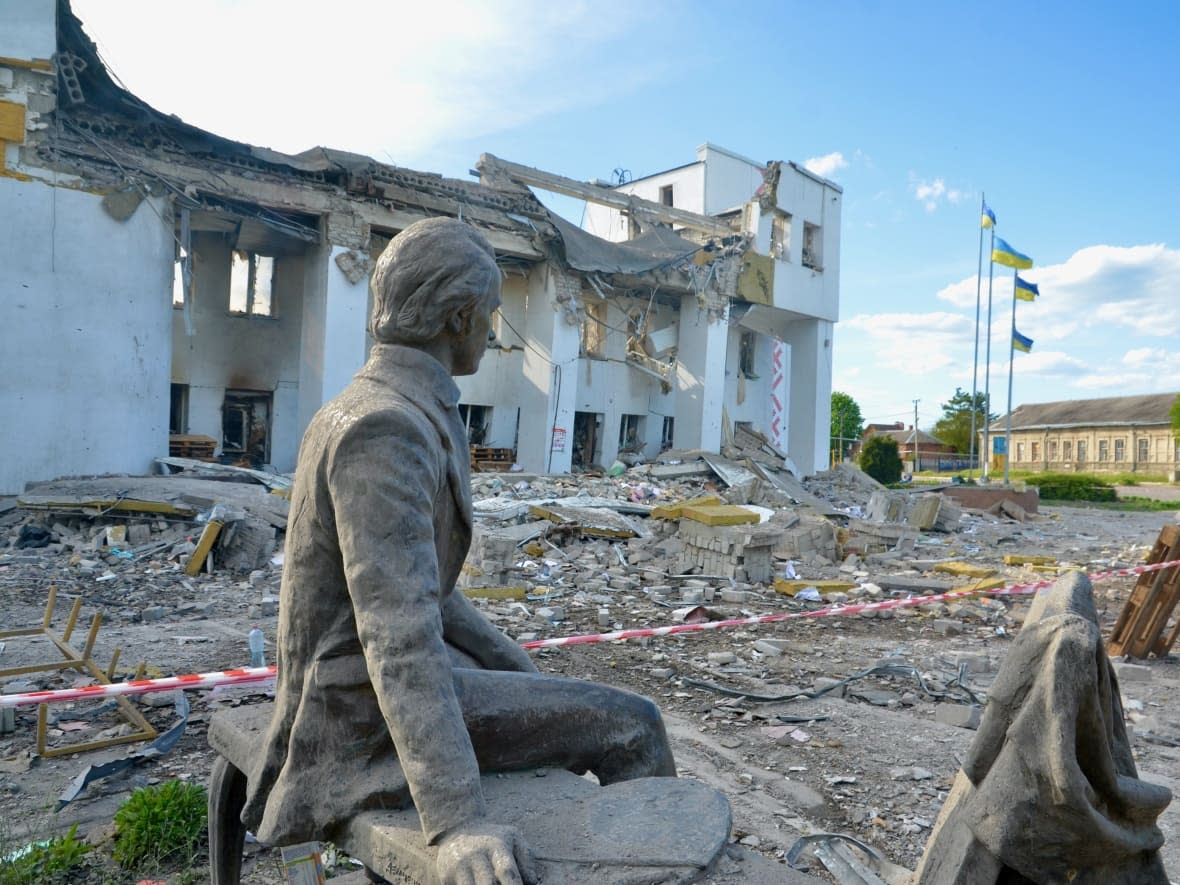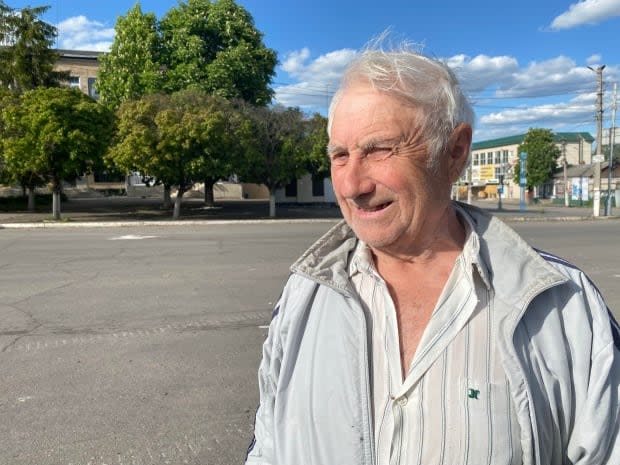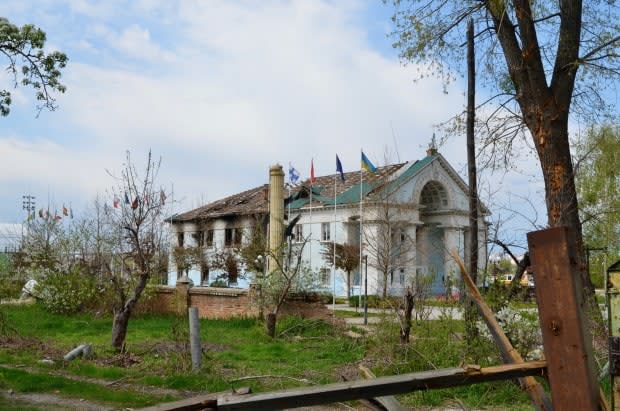Anger, sadness follow bombing of cultural centre in Ukrainian town of Derhachi

It had been an unusually quiet night in Derhachi, a rough, hilly, ravine-cut little town on the edge of Kharkiv, in northeast Ukraine.
The din of war had somewhat receded since Ukrainian troops had pushed the Russians back toward the border.
Konstantin, 77, says he was ambling around his second-floor apartment in the wee hours of Friday morning when a huge blast, not far away, shook the walls.
The elderly railway pensioner went outside to see smoke billowing into the night sky from the local cultural centre and library in the heart of his little community.
The building, which had been used since the Russian invasion as a hub for humanitarian aid, was hit twice, according to local officials. The first strike was with rocket artillery and the second was by a missile.
"What was the reason to shoot this building? I don't understand," Konstantin said.

Nearby was Irina Homyakova, 78, who did not linger long — or far — from her door as the night sky glowed red.
"I stepped out and there is electrical wire hanging loose somewhere and I was worried I'd get zapped by that," she said.
Two people — a couple living near the centre — were killed and four others were injured, an attack that shocked residents who seemed, at least on the surface, to take the rumble of artillery and the cacophony of war as just so much background noise.
"We are used to the bombing all of the time," said Konstantin, who added that, after the attack, he "just went to sleep."
The outpatient department and ambulance bay of the local hospital, as well as the civil registration office, also sustained damage.
Homyakova admitted to being terrified.

What happened in Derhachi on Friday was not random, since the same building was hit twice. Rather, it appears to be the latest example of a focused campaign of cultural destruction.
As of Monday, UNESCO had catalogued damage to 127 landmarks in Ukraine, including 11 museums, 54 religious buildings and 15 monuments. One of those monuments was a statue of Taras Shevchenko, the Ukrainian poet, damaged during the occupation of Borodianka, outside Kyiv.
Additionally, Ukrainian authorities allege that Russian troops have looted more 2,000 artworks from three cultural institutions in the ruined city of Mariupol.
WATCH | Aftermath of the attack on the aid centre
In Derhachi on Friday, the destruction of the centre looked total. A good portion of the roof was gone.
Konstantin, who only gave his first name and spoke reluctantly through an interpreter, checked out the damage in the late afternoon and cast a mournful eye on the still-smoldering ruins of the white-washed structure.
The library was where he had taken his daughter to get books when she was child. At the onset of the invasion, she fled to Germany with her child, Konstantin's only grandchild.
Asked why he hasn't left, he looked pained.
"I don't know," he replied and then added after a long pause, "It's my motherland. How can I leave here?"
In this mostly Russian-speaking area, Konstantin was reluctant to directly criticize the Russians other than to say the war was very concerning and a stressful situation.
Homyakova, however, did not hold back.
"Who's to blame? You know who's to blame, it's the Russians," she said. "Just look, Russians are shooting at Russians. There are Russians here, we've lived here for so long and now we are in this ridiculous comedy."


